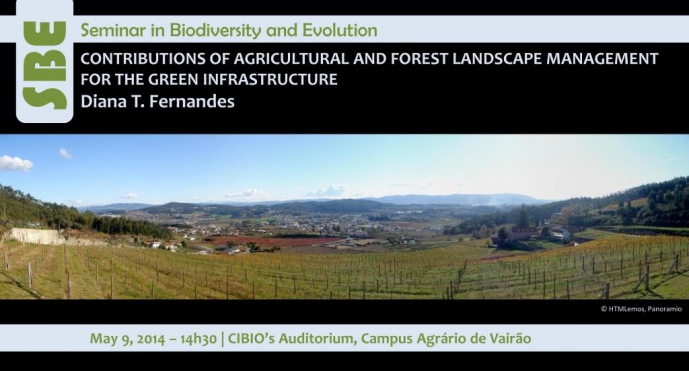CONTRIBUTIONS OF AGRICULTURAL AND FOREST LANDSCAPE MANAGEMENT FOR THE GREEN INFRASTRUCTURE


In order to ensure the territorial model’s resilience and the protection of natural and cultural resources that make up the Portugal North Coast landscape, this study - framed by the ON.2 Operationalization Assessment, which is hold by the regional government agency CCDR-N - aims for the development of a set of guidelines for the management of agricultural and forestry systems, within the Green Infrastructure (GI), based on the evaluation of its biophysical structure, along with an urban dynamics analysis (mobility and settlement patterns) and a landscape multifunctionality approach. Thus, it is believed that this work will contribute to a strategic framework - articulated with the Landscape European Convention objectives and the EU-wide Strategy on Green Infrastructure (GI-EUS) principles (CE, 2013) - which locally ensure the prosecution of the regional strategic objectives for the GI.
The focus of the proposed framework, based on the spatial planning instruments currently in place – in particular the Regional Spatial Plan for the Portugal Northern Territory (2009) – is set on the agricultural and forest landscape study, with water component as the sustainable development's key factor. It is intended to analyze, based on the landscape characterization, its distribution pattern and behavior when crossing urban centers and unoccupied spaces through a specific channel-area, and to highlight its contribution to the GI. The analysis of methodologies, concepts and criteria that underlie the delimitation of these systems, within the municipal GI, is required for the integration of the study solutions into the administrative procedures. However, it is also essential to improve the scientific knowledge basis of the territory, in order to propose mechanisms that ensure an upgrade performance of water resources and agricultural and forestry systems, specially within the GI area, in its assessment, planning and development context. The water resources management and the natural capital enhancement play a decisive role in the application of this exercise, as a true benchmark for regional coordination performance and structural funds implementation, especially during the National Strategic Reference Framework for the period 2014-2020.
Diana T. Fernandes is a PhD student in Landscape Architect and Urban Ecology, at the Faculty of Sciences, University of Porto, Portugal. Her research interest focuses on Riverside Landscape Planning and Management and her PhD project is supervised by Maria José Curado (CIBIO-InBIO) and co-supervised by Rodrigo Maia (Faculty of Engineering, University of Porto). Simultaneously, she has been working as a project collaborator on the "Study about the articulation of the ecological and landscape structure and the mobility, accessibility and intermodability structures of Portugal North Coast", in the LPDM Group (CIBIO-InBIO).
[PI: Paulo Farinha Marques, Landscape Planning, Design and Management]
Image credits: HTMLemos, Panoramio